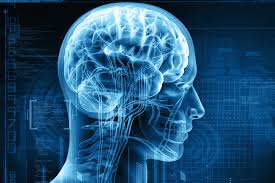An Exploration of Mental Disorders: Understanding the Complexities of the Human Brain
Understanding Neurological disorders
Neurological disorders are diseases of the central or peripheral nervous system.They are considered as a major cause of disability and second leading cause of death worldwide. Their contribution to the overall burden from all health conditions has been increasing in developed as well as developing countries.

Global Prevalence of Mental Disorders
According to World Health Organization (WHO), 3.4 billion people, out of the world's 8 billion population had a neurological problem. This means that 42.5% of the global population suffers from a neurological condition. According to Rita Levi-Montalcini who is a Nobel Prize winner in Medicine, states that the burden of neurological illnesses is increasing significantly in countries with a growing proportion of the population, aged 65 and older. Furthermore, a large body of evidence shows that policy makers and healthcare providers are unprepared with the estimated rise in the prevalence of neurological and other chronic disorders due to disability resulting from the extension of life expectancy and aging of population globally.
Causes of mental disorders
The significant gamble factors for neurological problems can be classed as hereditary/genetic variables; nutritional deficiencies, exposure to environmental toxins, infections, congenital anomalies, lifestyle or environmental health issues such as malnutrition, and brain, spinal cord, or nerve injuries. According to the study published in the Lancet Neurology states that nervous system illnesses are the major cause of impairment in adults. The escalation in brain disorders has also been related to an increase in early fatalities, with the majority occurring in third-world nations due to poor neurological healthcare facilities. Further neurological disorders cause more impairment and health loss in males than in women, yet some conditions, such as migraine or dementia, impact women disproportionately.
Top Ten Mental Disorders in the World
The burden of deaths and disability caused by neurological disorders has been increased during the last 30 years by 18%. The top 10 neurological disorders, includes stroke, neonatal encephalopathy, migraine, Alzheimer's disease and other dementias, diabetic neuropathy, meningitis, and Epilepsy, neurological complications due to preterm birth, autism spectrum disorder and nervous system cancer. Diabetic neuropathy, a type of nerve damage caused by high diabetes, is the fastest growing brain condition, with a threefold increase since 1990.
Sign and symptoms of mental disorders
There are numerous documented neurological illnesses, some of which are rather common, but many of which are uncommon. Mental disorders, on the other hand, are psychiatric illnesses or diseases that manifest largely as irregularities in thought, feeling, or behaviour, resulting in distress or impairment of function.
The National Library of Medicine in the United States reports that there are over 600 neurologic illnesses.
Neurological disability encompass a wide spectrum of illnesses, such as epilepsy, learning impairments, neuromuscular problems, autism, attention deficit disorder, brain tumours, and cerebral palsy are just a few examples. Some neurological diseases are congenital and develop before birth. Tumours, degeneration, trauma, infections, and structural abnormalities can all contribute to other disorders. All neurological disabilities, regardless of origin, are the result of nervous system injury. Communication, vision, hearing, movement, and cognition are all damaged to varying degrees depending on where the injury occurs.
Multidisciplinary Approach to Management of Mental Disorders
Neurological illnesses present considerable problems to healthcare systems worldwide. These disorders can have a significant influence on a person's quality of life, causing physical, emotional, and cognitive impairments. Managing neurological problems frequently need specialist care, which includes access to medical professionals, different diagnostic equipment, and complex treatment options. Unfortunately, most real-world settings lack the necessary resources to give adequate care to people with neurological illnesses. Furthermore, the intricacy of these disorders makes diagnosis and treatment challenging, resulting in misdiagnosis and delayed care, which can aggravate symptoms and increase the burden on patients and healthcare providers.

This paper offers a number of basic yet effective steps. It advocates for improved commitment from decision makers, increased social and professional awareness, and initiatives to combat stigma and prejudice to mental illness, national capacity building, and international collaboration to mitigate the effect of mental disorders.


You must be logged in to post a comment.